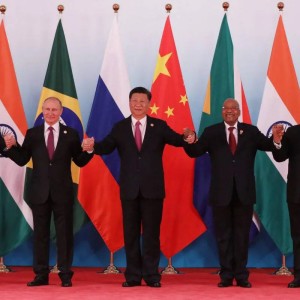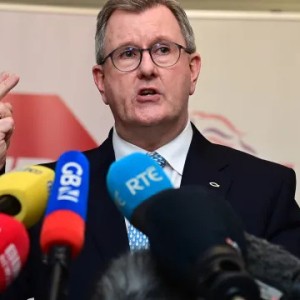The World Economic Forum (WEF) Annual Meeting 2022 in Davos, Switzerland concluded without definitive solutions to a number of global issues.
Nearly 2,500 politicians, business leaders, and members of the media gathered in the Swiss resort town hoping to address a wide range of concerns, including soaring inflation, climate change, along with the war in Ukraine.
Vladimir Putin's aggression and the subsequent economic impacts remained the prevailing focus during the World Economic Forum, especially in the headlining address by Ukrainian President Volodymyr Zelenskyy. Delivering remarks by video link, he said his country would not give up any of its land in order to end Russia's war.
When questioned by reporters about the conflict, Zelenskyy said this war is not against a particular person or entity but "for our land, for our freedom, for our independence, and for our future."
International Monetary Fund (IMF) Managing Director Kristalina Georgieva warned the group of elites that the growing food shortage is "dire," and that the global economy is facing its biggest threat since World War II. The IMF expects economic growth of 3.6% for 2022, slightly easing global recession fears. However, Georgieva emphasized surging food prices will continue to make this a "tough year" moving forward.
The strain on the global energy market was highly debated among leaders in Davos, as the U.S. national average for a gallon of gas fluctuates around $4.60, according to AAA. S&P Global Vice Chairman Daniel Yergin said the energy market "was tight before the Ukrainian crisis" and now it is "being disrupted by the direction of flows."
Yergin warned gas prices could go even higher as China reopens following COVID shutdowns. He argued that if China’s economy comes back strongly, it will further increase global oil demand and add more pressure on the struggling market.
"Tensions over trade, technology standards, and security have been growing for many years, undermining growth—and trust in the current global economic system," says IMF Managing Director.
Linked to energy is the environment, and President Joe Biden's Climate Czar John Kerry expressed optimism following a meeting with his Chinese counterpart during the WEF. This first in-person sit-down meeting between the two parties in months is part of an ongoing push by the White House to significantly reduce greenhouse gas emissions.
The semiconductor industry has been slammed with shortages stemming from supply chain bottlenecks, and has been widely felt in automotive and computer manufacturing. In the U.S., total car sales were down 21% year-on-year, according to new research by Deutsche Bank.
Speaking at the annual meeting, Intel CEO Patrick Gelsinger said this shortage will persist through 2024, but that his company has plans to for 10 new factories over the next five years to alleviate demand for equipment.
Attendees left Switzerland feeling a sense of urgency with war, food shortages, and economic uncertainty showing no immediate signs of easing. For the first time in its over 50-year history, the World Economic Forum has decision makers reassessing the idea of globalization.
SOURCE: FOXNEWS IMAGE SOURCE: Guardian














